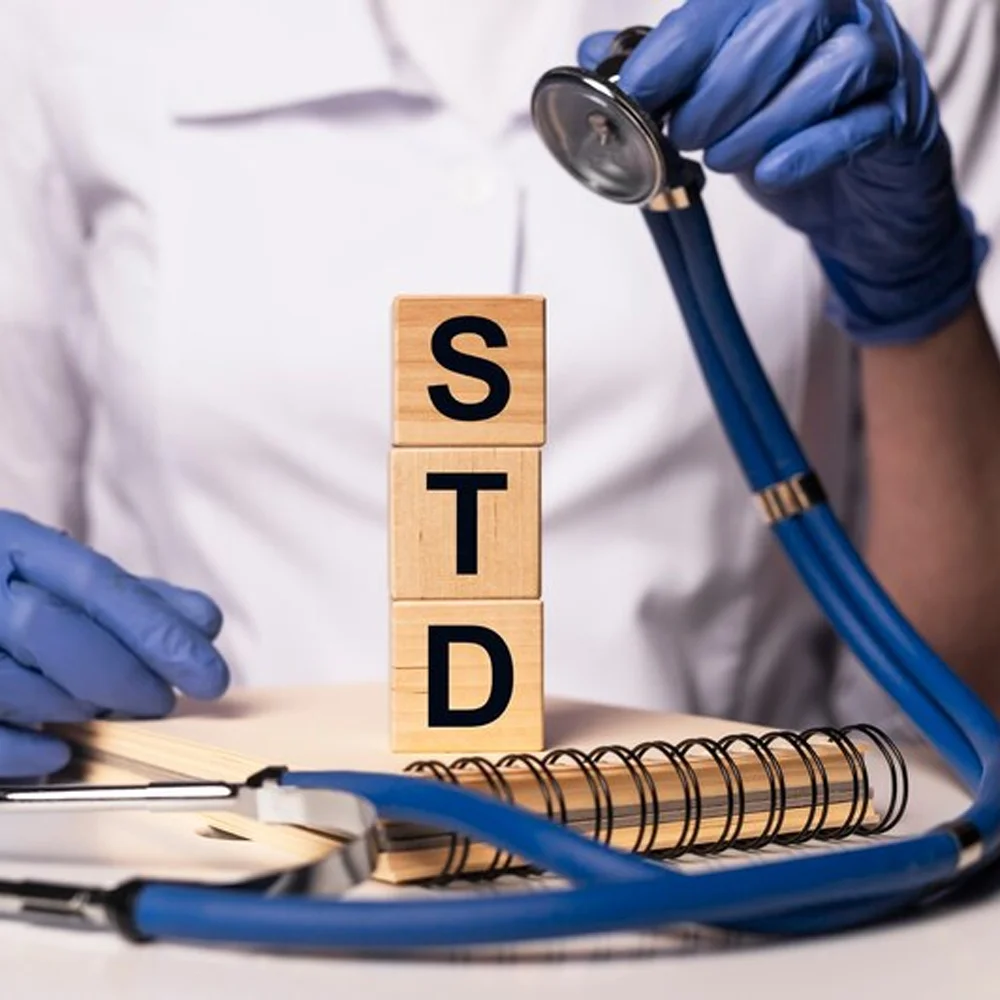Welcome to our comprehensive guide on protecting your health from the most common sexually transmitted diseases (STDs) and where to get tested. In this article, we’ll explore the importance of STD awareness, provide key information on different STDs, and offer guidance on finding reliable testing facilities.
Sexually transmitted diseases can affect anyone, regardless of age, gender, or sexual orientation. With the rising number of cases worldwide, it’s crucial to understand the risks, symptoms, and the steps you can take to prevent and manage these infections.
Throughout this guide, we’ll cover a range of common STDs, including chlamydia, gonorrhea, syphilis, herpes, HPV, and HIV/AIDS. We’ll delve into their causes, symptoms, and available treatment options. Additionally, we’ll discuss the importance of regular testing and prevention strategies to safeguard your health and the well-being of your partners.
Remember, knowledge is power when it comes to your sexual health. By understanding STDs, practicing safe sex, and getting regular check-ups, you can take proactive steps to protect yourself and those around you. So, let’s dive in and empower ourselves with the knowledge needed to lead healthy, fulfilling lives.

Understanding the most common STDs
STDs, or sexually transmitted diseases, are infections that are primarily spread through sexual contact. While there are numerous types of STDs, some are more prevalent than others. In this section, we’ll explore the most common STDs and their characteristics.
Chlamydia is one of the most widespread STDs, affecting millions of people worldwide each year. It is caused by the bacterium Chlamydia trachomatis and can often go unnoticed, as many individuals with chlamydia do not experience any symptoms. However, if left untreated, chlamydia can lead to serious complications, such as pelvic inflammatory disease, infertility, and increased risk of HIV transmission.
Gonorrhea is another highly contagious STD, caused by the bacterium Neisseria gonorrhoeae. It can infect the genitals, rectum, and throat, and its symptoms can include painful urination, unusual discharge, and swollen lymph nodes. Gonorrhea is particularly concerning as it has become increasingly resistant to certain antibiotics, making it more challenging to treat effectively.
Syphilis is a bacterial infection that progresses through several stages if left untreated. In its early stages, syphilis may present with painless sores or rashes, but if undetected, it can lead to more severe complications, including neurological problems and organ damage. Syphilis is particularly dangerous for pregnant women, as it can be passed on to the unborn child, causing congenital syphilis.
Symptoms and complications of STDs
The symptoms of STDs can vary greatly, and many infections may not present any noticeable signs at all. However, it’s important to be aware of the potential symptoms and complications associated with different STDs.
Chlamydia, for example, can cause burning during urination, unusual discharge, and pelvic pain in women. In men, the symptoms may include discharge from the penis and pain or swelling in the testicles. If left untreated, chlamydia can lead to pelvic inflammatory disease, which can cause infertility, chronic pelvic pain, and an increased risk of ectopic pregnancy.
Gonorrhea can also cause a range of symptoms, including painful urination, unusual discharge, and rectal pain or bleeding. In some cases, gonorrhea can spread to the joints, causing a condition called disseminated gonococcal infection, which can be life-threatening if not properly treated. Untreated gonorrhea can also lead to complications such as infertility, pelvic inflammatory disease, and an increased risk of HIV transmission.
Syphilis progresses through several stages, with the first stage characterized by painless sores or chancres on the genitals, rectum, or mouth. If left untreated, syphilis can progress to the secondary stage, where a rash and other symptoms may appear, and then to the latent and tertiary stages, which can involve more severe complications, such as neurological problems, organ damage, and even death. Congenital syphilis, which can occur when a pregnant woman with untreated syphilis passes the infection to her unborn child, can lead to a range of serious health issues, including deformities, developmental delays, and even stillbirth.
How STDs are transmitted and prevention methods
STDs are primarily transmitted through unprotected sexual contact, including vaginal, anal, and oral sex. However, some STDs, such as hepatitis B and HIV, can also be transmitted through contact with infected blood or from mother to child during pregnancy, childbirth, or breastfeeding.
To prevent the transmission of STDs, it’s essential to practice safe sex. This includes using condoms or dental dams during sexual activity, limiting the number of sexual partners, and avoiding sexual contact with someone who has an active STD. Regular STD testing is also crucial, as it can help identify infections early and prevent the spread of the disease to others.
In addition to practicing safe sex, there are other preventive measures that can help reduce the risk of contracting an STD. For example, the HPV vaccine can protect against certain strains of the human papillomavirus, which can cause genital warts and certain types of cancer. Individuals with a history of intravenous drug use should also consider getting tested for hepatitis C, as this infection can be transmitted through the sharing of needles or other drug paraphernalia.
It’s important to note that some STDs, such as herpes and HPV, can be transmitted even with the use of protection, as they can be spread through skin-to-skin contact. In these cases, regular testing and communication with sexual partners are essential to prevent the spread of the infection.
The importance of regular STD testing
Regular STD testing is a critical component of maintaining good sexual health. Many STDs, such as chlamydia and gonorrhea, can be asymptomatic, meaning that an infected individual may not experience any noticeable symptoms. However, these infections can still be transmitted to sexual partners and can lead to serious health complications if left untreated.
Getting tested for STDs on a regular basis, such as annually or after a new sexual partner, can help identify infections early and prevent the spread of the disease. Early detection and treatment of STDs can also reduce the risk of long-term complications, such as infertility, pelvic inflammatory disease, and neurological problems.
In addition to the personal benefits of regular STD testing, it also plays a crucial role in public health. By identifying and treating STDs, individuals can help prevent the further spread of these infections within their communities. This, in turn, can lead to a reduction in the overall prevalence of STDs and contribute to the overall well-being of the population.
Despite the importance of regular STD testing, many individuals still face barriers to accessing these services. Cost, lack of insurance coverage, and stigma surrounding STDs can all prevent people from getting tested. However, there are numerous resources and options available to make STD testing more accessible and affordable, which we’ll explore in the next section.
Where to get tested for STDs - clinics, hospitals, and online options
There are several options available for individuals seeking STD testing, including clinics, hospitals, and online services. The choice of testing location will depend on factors such as cost, convenience, and the level of privacy and confidentiality desired.
Community health clinics and Planned Parenthood centers are often excellent resources for affordable STD testing. These clinics typically offer a range of services, including testing, treatment, and counseling, and they may also provide sliding-scale fees or accept Medicaid or other forms of insurance.
Hospitals and private medical practices are another option for STD testing. These facilities may offer more comprehensive services, such as advanced diagnostic tests and treatment options. However, the cost of testing at a hospital or private practice may be higher, and the process may be less private or confidential.
In recent years, STD testing services at home have become increasingly popular. These services allow individuals to get tested in the privacy of their own homes. The results are then made available through a secure online portal, providing a discreet and convenient option for those who prefer to avoid the traditional clinical setting.
Regardless of the testing location, it’s essential to ensure that the facility or service is reputable and provides accurate, reliable results. Individuals should also be aware of their rights and privacy protections when it comes to STD testing, as many jurisdictions have laws in place to safeguard the confidentiality of these sensitive medical records.
Types of STD tests available and what to expect during the testing process
There are several types of STD tests available, each designed to detect specific infections or pathogens. The most common types of STD tests include:
Nucleic acid amplification tests (NAATs):
These tests, such as the polymerase chain reaction (PCR) test, are considered the gold standard for detecting certain STDs, including chlamydia and gonorrhea. NAATs are highly accurate and can identify the presence of the infection even in the absence of symptoms.
Blood tests:
Blood tests are used to detect the presence of antibodies to certain STDs, such as HIV, syphilis, and hepatitis. These tests can help identify past or current infections, even if the individual is not currently experiencing symptoms.
Swab tests:
Swab tests involve collecting a sample from the affected area, such as the genitals, rectum, or throat, and sending it to a laboratory for analysis. These tests are commonly used to detect infections like herpes, HPV, and trichomoniasis.
During the testing process, individuals can expect a brief and relatively painless procedure. For blood tests, a healthcare provider will draw a small sample of blood, usually from the arm. For swab tests, the provider will gently insert a sterile swab into the affected area to collect a sample.
It’s important to note that the testing process may vary depending on the specific STD being tested and the healthcare provider’s protocols. Individuals should feel free to ask questions and express any concerns they may have about the testing procedure or the confidentiality of their results.
Call Vesta Care Now to Begin the Evaluation Process!
Treatment options for common STDs
Fortunately, many common STDs can be effectively treated with appropriate medical care. The specific treatment approach will depend on the type of STD and the stage of the infection.
Bacterial STDs
such as chlamydia and gonorrhea, are typically treated with antibiotics. The treatment regimen may involve a single dose of medication or a course of antibiotics taken over several days. It’s essential to complete the full course of treatment to ensure the infection is effectively cleared and to prevent the development of antibiotic-resistant strains of the bacteria.
Viral STDs
such as herpes and HIV, cannot be cured, but they can be managed with medication. For herpes, antiviral medications can help reduce the frequency and severity of outbreaks, while for HIV, a combination of antiretroviral drugs can suppress the virus and prevent the progression to AIDS.
In the case of syphilis
a series of injections or oral medication may be prescribed, depending on the stage of the infection. Early detection and treatment are crucial, as untreated syphilis can lead to severe, life-threatening complications.
It’s important to note that while treatment options are available, some STDs, such as HPV, may not have a specific cure. In these cases, the focus is on managing the symptoms and reducing the risk of complications, such as the development of genital warts or certain types of cancer.
Regardless of the STD, it’s essential to follow the healthcare provider’s instructions and complete the full course of treatment. Individuals should also notify their sexual partners and encourage them to get tested and treated, if necessary, to prevent the further spread of the infection.
Explore Your Options with Vesta Care for Affordable Healthcare Solutions!
Support and resources for individuals with STDs
Receiving a diagnosis of an STD can be a challenging and emotional experience. However, it’s important to remember that you are not alone, and there are numerous resources and support systems available to help you navigate this journey.
One of the first steps in seeking support is to have an open and honest conversation with your healthcare provider. They can offer guidance on the specifics of your infection, the treatment options available, and any necessary follow-up care. They can also provide referrals to counseling services or support groups, if needed.
In addition to medical support, there are numerous online and community-based resources for individuals with STDs. These may include support groups, educational materials, and advocacy organizations that can provide information, emotional support, and practical assistance. Connecting with others who have had similar experiences can be invaluable in helping you cope with the diagnosis and manage the condition effectively.
It’s also important to remember that an STD diagnosis does not define you or your worth. With the right support and treatment, many individuals with STDs are able to maintain healthy, fulfilling relationships and live active, productive lives. The key is to approach your diagnosis with compassion, self-care, and a commitment to your overall well-being.
If you or someone you know is struggling with the emotional or social impact of an STD, don’t hesitate to reach out for help. There are many resources and professionals available to provide the support and guidance you need during this time.
Contact Vesta Care today to begin the insurance approval process and secure the healthcare services you deserve!
Conclusion and encouraging readers to prioritize their sexual health
In conclusion, understanding the most common STDs, their symptoms, and prevention methods is crucial for maintaining good sexual health. Regular STD testing, safe sexual practices, and seeking prompt medical attention when necessary can all play a vital role in protecting yourself and your partners from the potential consequences of these infections.
Remember, knowledge is power when it comes to your sexual health. By educating yourself and taking proactive steps to manage your well-being, you can reduce the risk of contracting or transmitting an STD, and enjoy a fulfilling, healthy sex life.
If you have any concerns or questions about your sexual health, don’t hesitate to reach out to a healthcare provider or explore the various resources available. Your sexual and reproductive health are essential components of your overall well-being, and they deserve the same level of attention and care as any other aspect of your health.
Take charge of your sexual health today. Get tested regularly, practice safe sex, and seek support if needed. By prioritizing your sexual well-being, you’re not only protecting yourself but also contributing to the overall health and wellness of your community. Together, we can work towards a future where STDs are better understood, more effectively managed, and ultimately, prevented.
This article is medically reviewed by:

Recent Posts
Book Your Home Healthcare Consultation Today
Your Health Matters – Reach Out Now and Let’s Discuss How Vesta Care Can Help.











